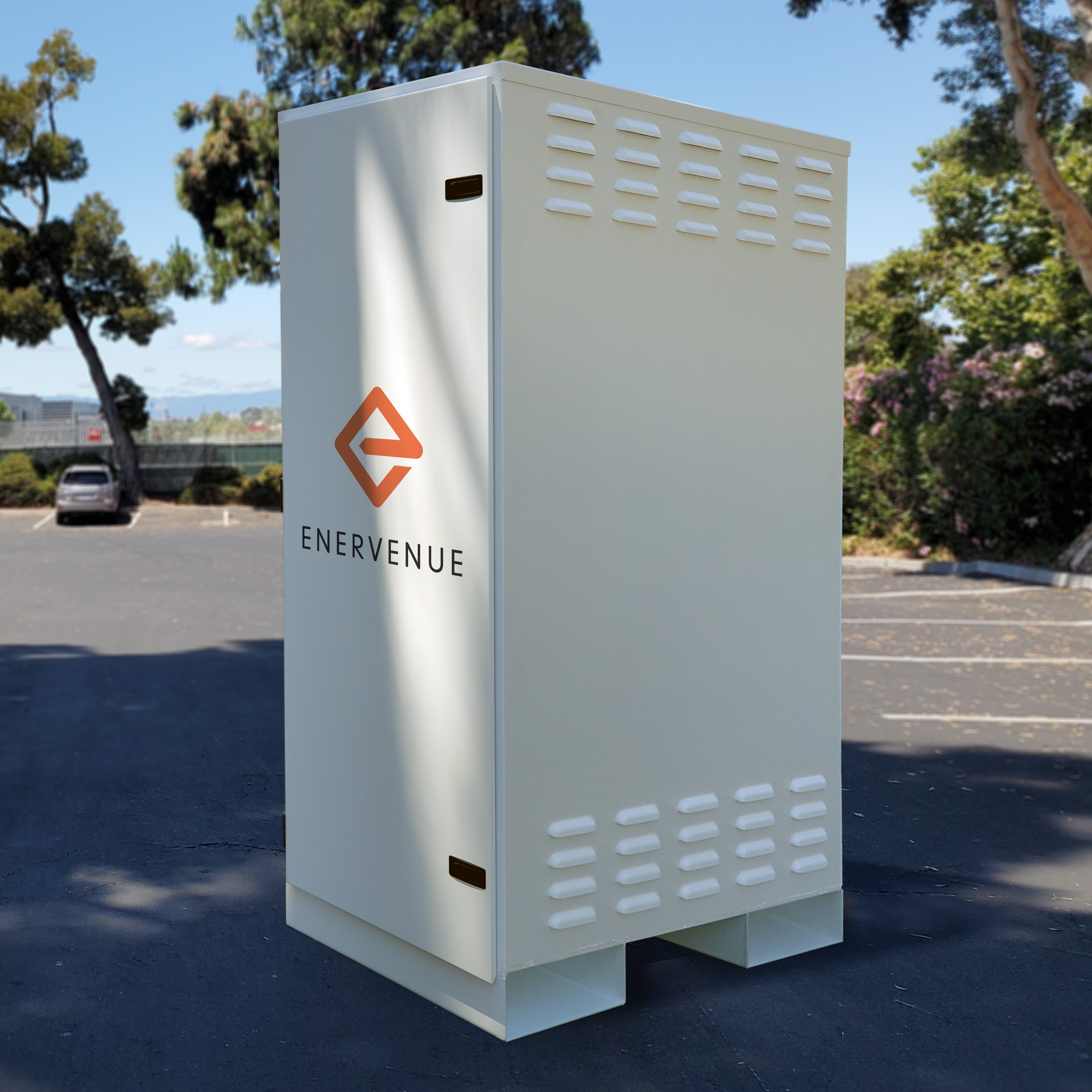In order to support a buildout of renewable energy, which tends to over-generate electricity at certain times of day and under-generate at others, the grid is going to need a lot of batteries. While lithium-ion works fine for consumer electronics and even electric vehicles, battery startup EnerVenue says it developed a breakthrough technology to revolutionize stationary energy storage.
The technology itself – nickel-hydrogen batteries – isn’t actually new. In fact, it’s been used for decades in aerospace applications, to power everything from satellites to the International Space Station and the Hubble Telescope. Nickel-hydrogen had been too expensive to scale for terrestrial applications, until Stanford University professor (and now EnerVenue chairman) Yi Cui determined a way to adapt the materials and bring the costs way, way down.
Nickel-hydrogen has a number of key benefits over lithium-ion, according to EnerVenue: it can withstand super-high and super-low temperatures (so no need for air conditioners or thermal management systems); it requires very little to no maintenance; and it has a far longer lifespan.
The technology has caught the eye of two giants in the oil and gas industry, energy infrastructure company Schlumberger and Saudi Aramco’s VC arm, who together with Stanford University have raised $100 million in Series A funding. The investment comes around a year after EnerVenue raised a $12 million seed. The company is planning on using the funds to scale its nickel-hydrogen battery production, including a Gigafactory in the U.S., and has entered a manufacturing and distribution agreement with Schlumberger for international markets.
“I spent almost three and a half years prior to EnerVenue looking for a battery storage technology that I thought could compete with lithium-ion,” CEO Jorg Heinemann told TechCrunch in a recent interview. “I had essentially given up.” Then he met with Cui, who had managed through his research to bring the cost down from around $20,000 per kilowatt hour to $100 per kilowatt hour within line of sight – a jaw-dropping decrease that puts it on-par with existing energy storage technology today.

EnerVenue CEO Jorg Heinemann Image Credits: EnerVenue (opens in a new window)
Think of a nickel-hydrogen battery as a kind of battery-fuel cell hybrid. It charges by building up hydrogen inside a pressure vessel, and when it discharges, that hydrogen gets reabsorbed in water, Heinemann explained. One of the key differences between the batteries in space and the one’s EnerVenue is developing on Earth is the materials. The nickel-hydrogen batteries in orbit use a platinum electrode, which Heinemann said accounts for as much as 70% of the cost of the battery. The legacy technology also uses a ceramic separator, another high cost. EnerVenue’s key innovation is finding new, low-cost and Earth-abundant materials (though the exact materials they aren’t sharing).
Heinemann also hinted that an advanced team within the company is working on a separate technology breakthrough that could bring the cost down even further, to the range of around $30 per kilowatt hour or less.
Those aren’t the only benefits. EnerVenue’s batteries can charge and discharge at different speeds depending on a customer’s needs. It can go from a 10-minute charge or discharge to as slow as a 10-20 hour charge-discharge cycle, though the company is optimizing for a roughly 2 hour charge and 4-8 hour discharge. EnerVenue’s batteries are also designed for 30,000 cycles without experiencing a decline in performance.
“As renewables get cheaper and cheaper, there’s lots of time of the day where you’ve got, say, a 1-4-hour window of close to free power that can be used to charge something, and then it has to be dispatched fast or slow depending on when the grid needs it,” he said. “And our battery does that really well.”
It’s notable that this round was funded by two companies that loom large in the oil and gas industry. “I think it’s nearly 100% of the oil and gas industry is now pivoting to renewables in a huge way,” Heinemann added. “They all see the future as, the energy mix is shifting. We’re going to be 75% renewable by mid-century, most think it’s going to happen quicker, and those are based on studies that the oil and gas industry did. They see that and they know they need a new play.”

Image Credits: EnerVenue
Don’t expect nickel-hydrogen to start appearing in your iPhone anytime soon. The technology is big and heavy – even scaled down as much as possible, a nickel-hydrogen battery is still around the size of a two-liter water flask, so lithium-ion will definitely still play a major role in the future.
Stationary energy storage may have a different future. EnerVenue is currently in “late-stage” discussions on the site and partner for a United States factory to produce up to one gigawatt-hour of batteries annually, with the goal of eventually scaling even beyond that. Heinemann estimates that the tooling cap-ex per megawatt hour should be just 20% that of lithium ion. Under the partnership with Schlumberger, the infrastructure company will also be separately manufacturing batteries and selling them in Europe and the Middle East.
“It’s a technology that works today,” Heinemann said. “We’re not waiting on a technology breakthrough, there’s no science project in our future that we have to go achieve in order to prove out something. We know it works.”
Source Link EnerVenue raises $100M to accelerate clean energy using nickel-hydrogen batteries
Leave a Reply